Introduction
The Foreign Corrupt Practices Act (FCPA) represents a vital component of the global fight against corruption. Enacted by the United States in 1977, the FCPA (The Prevention of Corruption Act (PCA) of 1988 is the closest Indian act to the Foreign Corrupt Practices Act (FCPA) addresses two major issues: the bribery of foreign officials and the maintenance of accurate corporate financial records. These measures aim to ensure fairness in international commerce and promote ethical business practices. However, enforcing the FCPA is no small task, particularly when dealing with complex cases that often span multiple jurisdictions and involve significant amounts of money.
Table of Contents
When allegations of FCPA violations surface, the investigation often becomes a collaborative effort among three key U.S. agencies: the Securities and Exchange Commission (SEC), the Federal Bureau of Investigation (FBI), and the Department of Justice (DOJ). Together, these agencies conduct comprehensive probes to uncover potential wrongdoing, leveraging their respective expertise in securities regulation, criminal investigation, and prosecution.
A pivotal tool in such investigations is the grand jury. This legal body is tasked with examining evidence presented by federal prosecutors to determine whether there is sufficient cause to bring formal charges against the accused. In FCPA cases, the grand jury process is particularly critical due to the often complex nature of the evidence, which may include financial documents, email correspondences, and testimony from whistleblowers or insiders. The grand jury ensures that the decision to indict is grounded in a thorough review of the available evidence, safeguarding the integrity of the legal process.
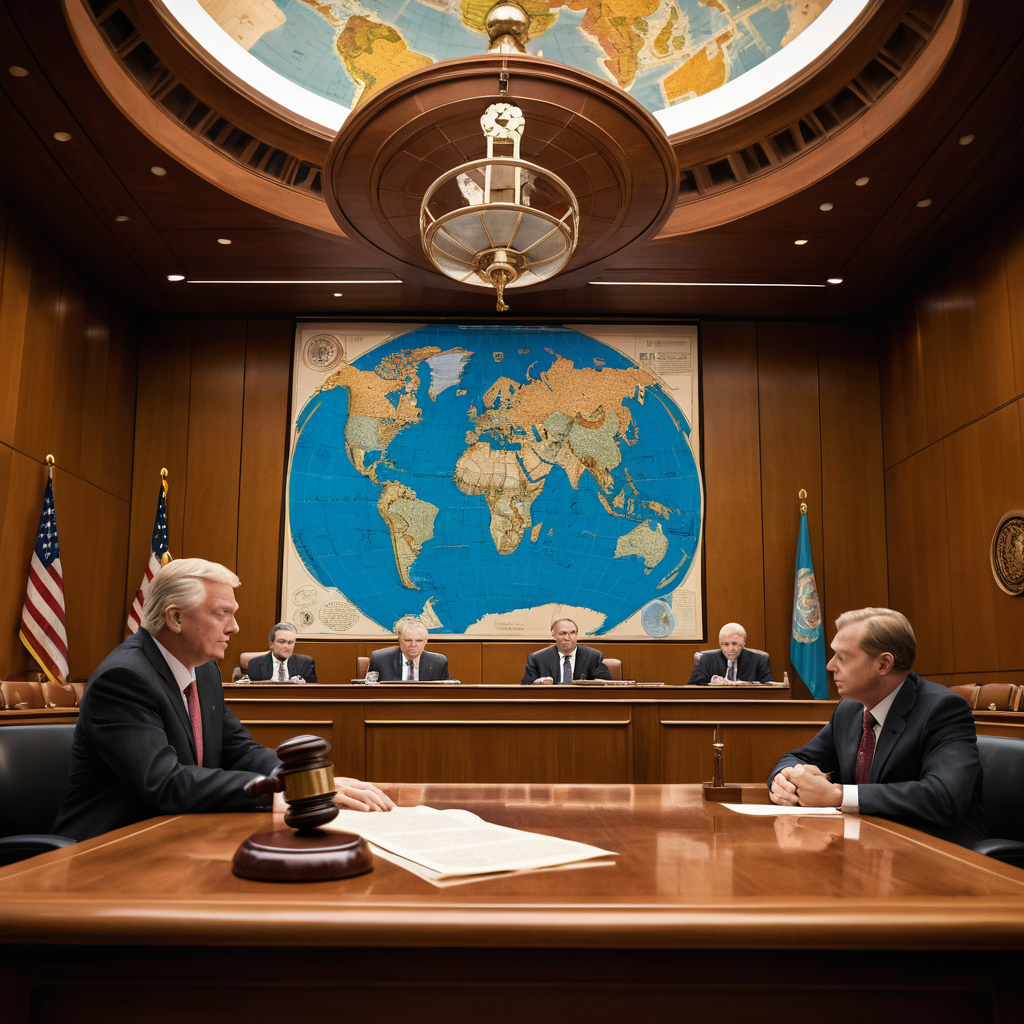
This blog delves into the workings of grand juries in FCPA cases, particularly those involving the SEC, FBI, and DOJ. We will explore how these agencies coordinate their efforts, the legal standards grand juries use to evaluate evidence, and the steps that follow an indictment. By shedding light on these processes, we aim to provide a comprehensive understanding of how the U.S. legal system addresses corporate corruption and holds both individuals and organizations accountable for their actions.
Through this exploration, we also emphasize the importance of corporate compliance and ethical practices. The grand jury process not only seeks justice but also serves as a powerful deterrent against corrupt practices, highlighting the need for companies to prioritize transparency and integrity in their operations. Understanding these mechanisms can help businesses and individuals navigate the complex legal landscape of FCPA enforcement and contribute to a fairer global economy.
Section 1: Understanding the FCPA
The Foreign Corrupt Practices Act (FCPA) is one of the most influential pieces of legislation aimed at combating corruption on an international scale. Enacted in 1977, the FCPA established a robust framework for addressing bribery and enhancing corporate accountability. Its significance extends beyond U.S. borders, influencing global standards for ethical business practices and transparency. This section explores the origins, key provisions, scope, and impact of the FCPA in shaping the modern corporate landscape.
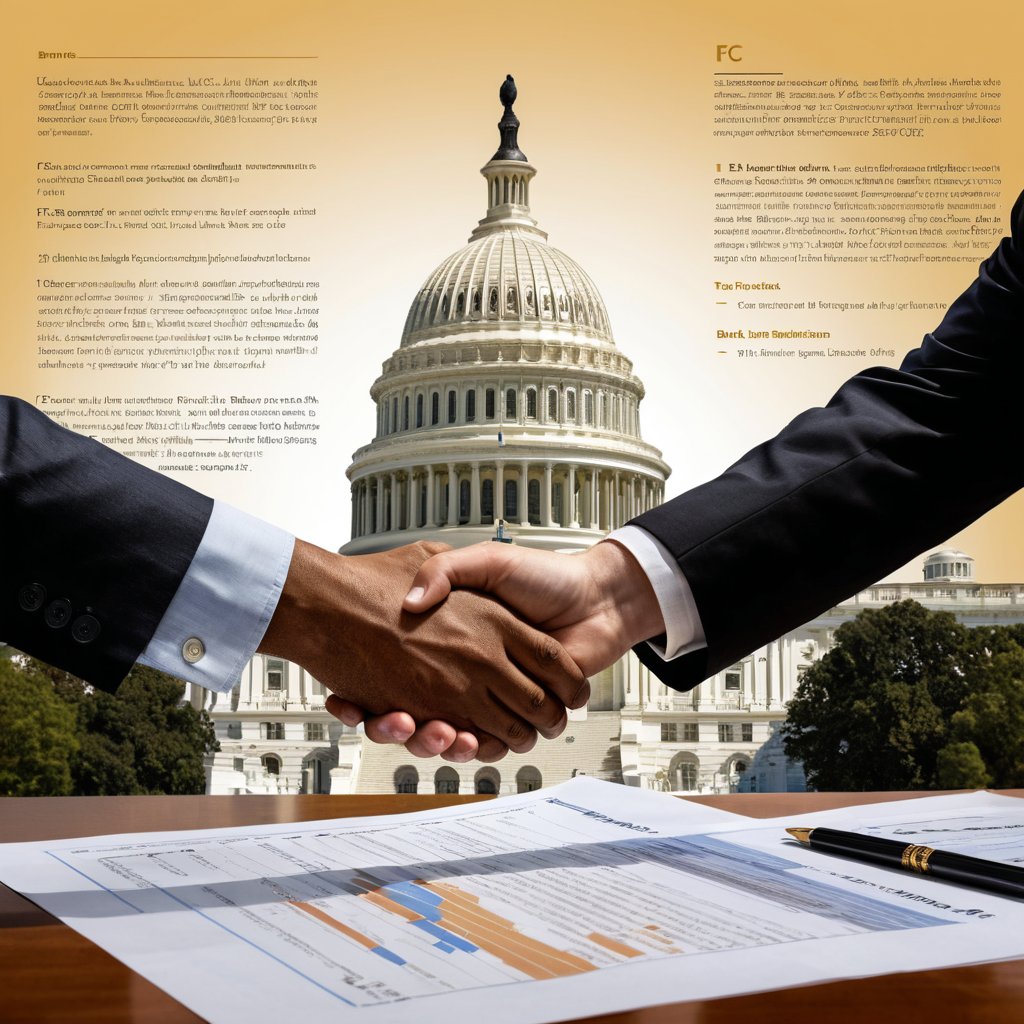
Origins and Historical Context of the FCPA
The FCPA was a response to the widespread corruption scandals of the 1970s, many of which involved U.S. companies engaging in unethical practices abroad. Investigations by the Watergate Special Prosecutor revealed that over 400 U.S. companies had made questionable payments totaling hundreds of millions of dollars to foreign officials. These payments were often used to secure business deals, licenses, or favorable regulatory decisions.
The revelations highlighted a systemic problem that not only undermined fair competition but also tarnished the global reputation of U.S. businesses. To address these issues, Congress enacted the FCPA, marking the first time any country passed legislation specifically targeting bribery of foreign officials. This groundbreaking law became a model for other anti-corruption initiatives worldwide.
Key Provisions of the FCPA
The FCPA has two primary components:
- Anti-Bribery Provisions
The anti-bribery provisions make it illegal for individuals and entities to offer, promise, or provide anything of value to foreign officials to influence their actions or secure an improper advantage. This includes:- Payments made directly to officials or indirectly through intermediaries, such as agents or consultants.
- Offers of cash, gifts, travel, or other benefits that may be construed as bribes.
- Accounting Provisions
The FCPA also mandates rigorous accounting standards for publicly traded companies, requiring them to:- Maintain accurate books and records that reflect transactions transparently.
- Establish robust internal controls to prevent and detect corruption.
Scope and Applicability of the FCPA
The FCPA has a broad scope, applying to:
- U.S. Companies and Citizens: Any U.S.-registered company or individual, regardless of where the alleged bribery occurs.
- Foreign Entities in the U.S.: Foreign companies and nationals can also be prosecuted if their actions involve U.S. territory or financial systems.
- Parent and Subsidiary Companies: Parent companies can be held liable for the actions of their subsidiaries, especially if they exert control or knowingly benefit from corrupt practices.
This extensive jurisdictional reach underscores the global implications of FCPA compliance. Companies operating internationally must navigate a complex web of regulatory requirements, often balancing local customs with global legal obligations.
Why the FCPA Matters
The FCPA plays a pivotal role in fostering fair competition and ethical business practices. Corruption erodes trust, distorts markets, and disproportionately harms developing countries by diverting resources away from public goods like healthcare, education, and infrastructure.
Moreover, compliance with the FCPA is not merely a legal obligation but also a strategic advantage. Companies with strong anti-corruption policies and transparent practices are more likely to attract investors, maintain customer loyalty, and build lasting partnerships.
Major FCPA Enforcement Cases
Over the decades, several high-profile enforcement actions have demonstrated the FCPA’s effectiveness in addressing corporate corruption.
- Siemens AG: In 2008, Siemens paid over $1.6 billion in penalties to settle charges of widespread bribery in multiple countries. The case highlighted the role of weak internal controls in enabling corruption.
- Walmart: The retail giant faced a major investigation into alleged bribes paid in Mexico to expedite store openings. The case underscored the importance of global compliance programs.
- Odebrecht and Braskem: In a joint case, these companies paid $3.5 billion in penalties for engaging in a massive bribery scheme to secure infrastructure contracts worldwide.
These cases illustrate the global impact of FCPA enforcement, serving as a warning to companies that corruption carries significant legal, financial, and reputational risks.
The FCPA’s Influence on Global Anti-Corruption Efforts
The FCPA’s passage marked a turning point in the global fight against corruption. Over time, it has inspired similar legislation in other countries, such as the UK Bribery Act and Canada’s Corruption of Foreign Public Officials Act.
Additionally, international frameworks like the OECD Anti-Bribery Convention and the United Nations Convention Against Corruption (UNCAC) reflect the growing consensus on the need for collective action against corruption. By setting a high standard for anti-corruption enforcement, the FCPA has pushed multinational companies to adopt more rigorous compliance programs and ethical practices worldwide.
Challenges and Criticisms of the FCPA
While the FCPA is widely regarded as a landmark in anti-corruption law, it is not without its challenges and criticisms:
- Ambiguity in Enforcement: Critics argue that the law’s broad language can lead to uncertainty about what constitutes a violation, particularly in cases involving intermediaries or facilitation payments.
- Compliance Costs: Smaller companies often struggle to meet the stringent compliance requirements, which can be resource-intensive.
- International Criticism: Some foreign governments view FCPA enforcement as extraterritorial overreach by the United States.
Despite these challenges, the FCPA remains a cornerstone of global anti-corruption efforts, balancing its deterrent effect with the need for fair and transparent business practices.
By understanding the FCPA’s provisions, scope, and significance, companies and individuals can better navigate its complexities and align their operations with ethical and legal standards. As we move into the next sections, we will explore how the SEC, FBI, and DOJ play pivotal roles in enforcing this law, ensuring accountability for those who attempt to circumvent it.
Section 2: The Roles of SEC, FBI, and DOJ in FCPA Investigations
The enforcement of the Foreign Corrupt Practices Act (FCPA) is a collaborative effort that involves multiple U.S. agencies, each bringing unique expertise and resources to the process. The Securities and Exchange Commission (SEC), Federal Bureau of Investigation (FBI), and Department of Justice (DOJ) form the backbone of FCPA enforcement. Together, they investigate allegations, uncover evidence, and ensure accountability for violations of the Act. This section delves deeper into the specific roles and responsibilities of each agency, how they coordinate during investigations, and the challenges they face in tackling complex cases.
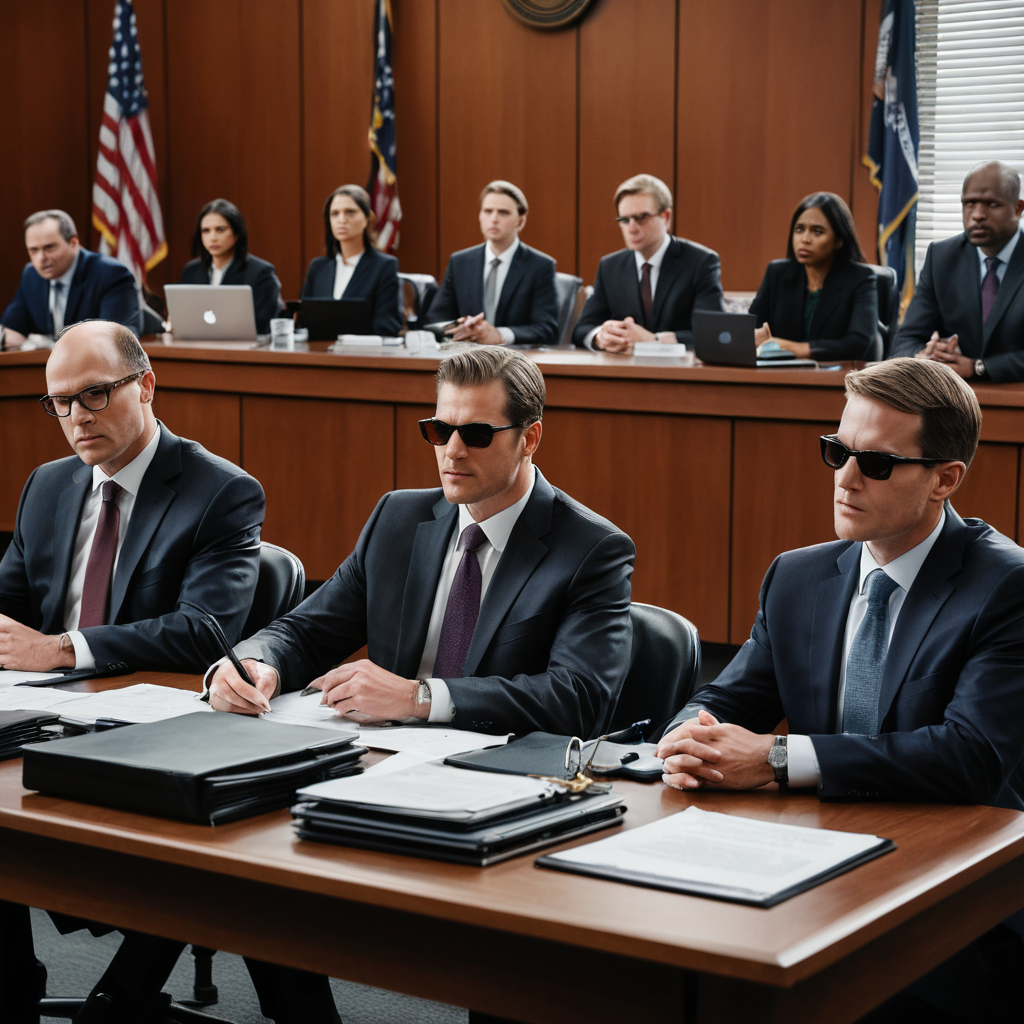
The Role of the SEC: Safeguarding the Integrity of Financial Markets
The SEC is primarily responsible for enforcing the FCPA’s accounting and disclosure provisions. Its mandate is to ensure that publicly traded companies maintain accurate financial records and implement robust internal controls to prevent fraudulent practices. The SEC’s jurisdiction covers entities listed on U.S. stock exchanges, regardless of their headquarters or operational locations.
- Detecting Violations
- The SEC often uncovers potential FCPA violations through routine audits, whistleblower tips, or financial irregularities reported in public filings.
- The agency’s whistleblower program, established under the Dodd-Frank Act, incentivizes individuals to report misconduct by offering monetary rewards for information that leads to successful enforcement actions.
- Investigative Powers
- The SEC can subpoena documents, interview witnesses, and analyze financial transactions to trace the flow of illicit payments.
- It frequently collaborates with other agencies, such as the DOJ and FBI, to build a comprehensive case against violators.
- Penalties and Settlements
- In cases of non-compliance, the SEC can impose civil penalties, require disgorgement of profits obtained through corrupt practices, or mandate remedial actions to strengthen internal controls.
- High-profile cases, such as those involving Siemens AG and Walmart, highlight the SEC’s effectiveness in holding companies accountable for financial misconduct.
The Role of the FBI: Investigating the Criminal Side of Corruption
The FBI serves as the investigative arm of FCPA enforcement, focusing on uncovering criminal conduct, including bribery and corruption. Its role is critical in collecting evidence, identifying key actors, and dismantling complex networks of corruption that span multiple jurisdictions.
- Expertise in Criminal Investigations
- The FBI leverages its expertise in forensic accounting, cybercrime, and intelligence gathering to trace the origins and destinations of corrupt payments.
- Agents often work undercover or rely on informants to gather firsthand evidence of bribery schemes.
- International Cooperation
- Given the global nature of many FCPA cases, the FBI collaborates with foreign law enforcement agencies and organizations like Interpol to share intelligence and conduct joint investigations.
- Mutual Legal Assistance Treaties (MLATs) are often used to obtain evidence from foreign jurisdictions.
- Focus on Individual Accountability
- While corporations are frequently penalized under the FCPA, the FBI prioritizes identifying and prosecuting individuals who orchestrate or benefit from corrupt activities. This approach reinforces the personal consequences of engaging in bribery.
The Role of the DOJ: Prosecution and Legal Framework
The DOJ is the primary agency responsible for prosecuting FCPA violations. Its role is to ensure that both corporations and individuals are held criminally accountable for their actions, promoting the rule of law and deterring future misconduct.
- Criminal Prosecution
- The DOJ prosecutes cases of bribery, money laundering, and conspiracy under the FCPA. These cases often involve significant fines, imprisonment for individuals, and reputational damage for companies.
- High-profile cases, such as the prosecution of executives from Odebrecht and Braskem, illustrate the DOJ’s commitment to pursuing large-scale corruption.
- Coordination with the SEC and FBI
- The DOJ works closely with the SEC in cases involving publicly traded companies to ensure a unified approach to enforcement.
- Collaboration with the FBI allows the DOJ to leverage investigative findings for successful prosecutions.
- Negotiated Settlements
- Many FCPA cases are resolved through Deferred Prosecution Agreements (DPAs) or Non-Prosecution Agreements (NPAs), which allow companies to avoid formal charges by cooperating with investigations, paying fines, and implementing compliance reforms.
- These settlements often include compliance monitorships to ensure that companies adhere to their commitments.
Inter-Agency Coordination: A Unified Front Against Corruption
The SEC, FBI, and DOJ operate under a shared commitment to enforcing the FCPA, but their collaboration requires careful coordination to maximize efficiency and impact.
- Information Sharing
- Regular communication and sharing of evidence among agencies ensure that investigations are thorough and comprehensive.
- The DOJ’s FCPA Unit and the SEC’s Enforcement Division often hold joint meetings to discuss case strategies and developments.
- Global Enforcement Partnerships
- In cases involving international corruption, the agencies collaborate with foreign governments, non-governmental organizations (NGOs), and multinational enforcement bodies like the OECD to build stronger cases and recover assets.
- These partnerships are essential for overcoming jurisdictional barriers and ensuring accountability on a global scale.
- Challenges in Coordination
- Despite their shared goals, inter-agency investigations can face challenges such as resource constraints, conflicting priorities, or jurisdictional disputes. Addressing these issues requires ongoing dialogue and commitment to the principles of justice.
Impact of Collaborative Enforcement
The combined efforts of the SEC, FBI, and DOJ have significantly strengthened the enforcement of the FCPA, sending a clear message that corruption will not be tolerated. Their work has led to:
- Record-breaking penalties that deter potential violators.
- Increased corporate investment in compliance programs to avoid legal repercussions.
- Greater awareness of the ethical and financial consequences of corruption in the business community.
Moreover, these agencies have contributed to shaping international anti-corruption standards, encouraging other countries to adopt similar measures and participate in global enforcement initiatives.
By understanding the distinct yet interconnected roles of the SEC, FBI, and DOJ, stakeholders can better appreciate the complexities of FCPA enforcement. This awareness is critical not only for navigating legal risks but also for fostering a culture of transparency and accountability in global business practices.
Section 3: Grand Jury Investigations and Indictments in FCPA Cases
A critical aspect of the enforcement process for FCPA violations is the use of grand jury investigations and indictments. The grand jury system serves as a key mechanism for determining whether criminal charges should be brought against individuals or entities accused of violating the law. This section provides an in-depth exploration of how grand juries work within the context of FCPA cases, the process of obtaining indictments, and what happens after a grand jury returns an indictment.
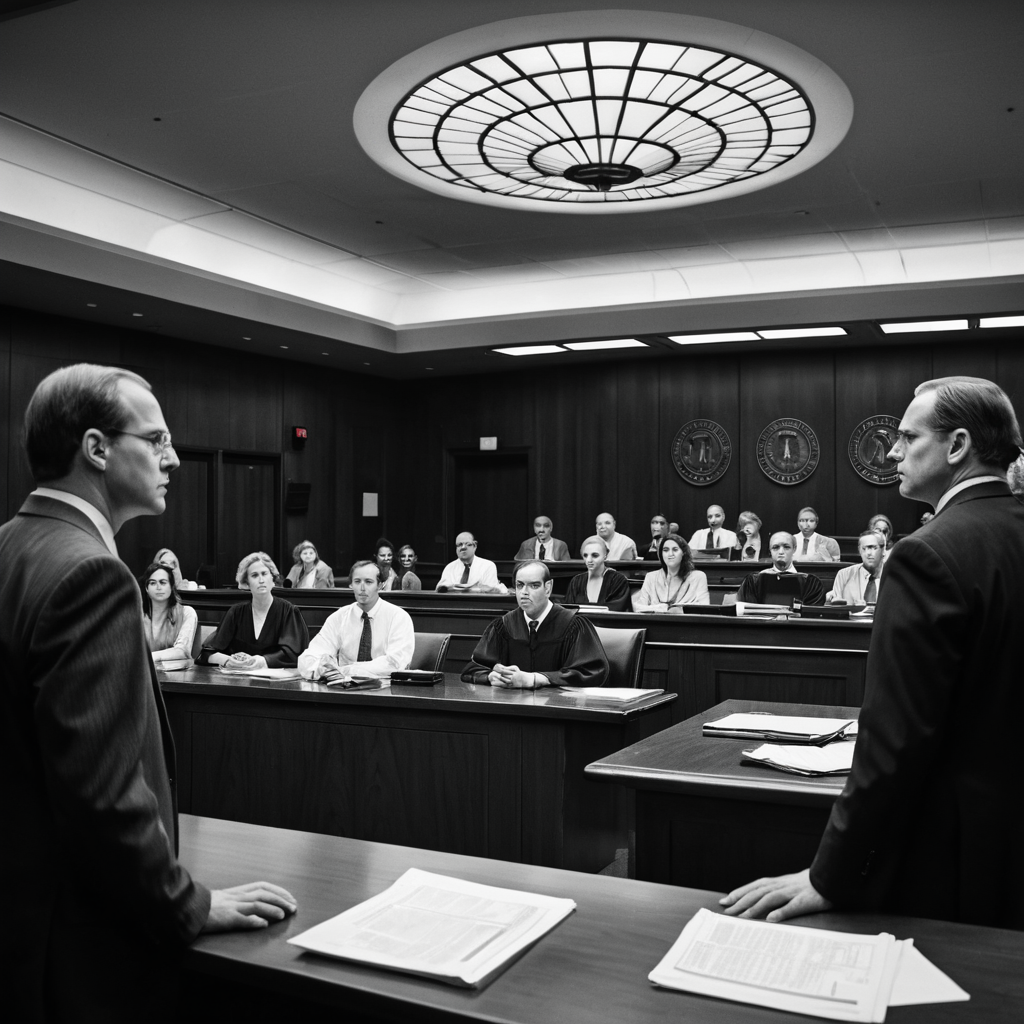
What is a Grand Jury?
A grand jury is a group of citizens, typically 16 to 23 individuals, selected from the community, who are tasked with reviewing evidence and determining whether there is probable cause to formally charge someone with a crime. Unlike a trial jury, which decides the guilt or innocence of a defendant in a court case, a grand jury’s role is to decide whether sufficient evidence exists to charge someone with a criminal offense.
The grand jury operates in secrecy, with proceedings closed to the public, and it has the power to subpoena documents, summon witnesses, and review evidence provided by prosecutors. Importantly, the grand jury does not decide guilt or innocence but instead assesses whether a criminal indictment is warranted.
The Role of the Grand Jury in FCPA Cases
In the context of FCPA cases, a grand jury is often convened by the Department of Justice (DOJ) to investigate potential violations of the Foreign Corrupt Practices Act. FCPA violations typically involve bribery of foreign officials, falsification of accounting records, or other forms of corruption related to international business dealings. Here’s how the grand jury process works in these cases:
- Initiation of the Investigation
- The DOJ, FBI, and SEC collaborate to build a case based on intelligence, financial records, whistleblower reports, or other investigative tools.
- Once sufficient evidence has been gathered, the DOJ may request a grand jury investigation, especially if the case involves criminal activity, such as bribery or fraud.
- A prosecutor presents the evidence to the grand jury, which decides whether the evidence supports criminal charges.
- Evidence Presentation
- In FCPA cases, prosecutors may present a wide range of evidence, such as financial transactions, emails, wire transfers, recordings, or testimonies from informants and cooperating witnesses.
- Expert witnesses, such as forensic accountants, may also be brought in to explain complex financial transactions or corruption schemes.
- The grand jury has the authority to subpoena additional documents and request further evidence to strengthen the case.
- Secrecy and Protection of Witnesses
- The grand jury operates in secrecy, which ensures that potential witnesses are protected from intimidation or retaliation. This is especially important in FCPA cases, where witnesses might be located abroad or in hostile environments.
- The secrecy also allows for the presentation of evidence without alerting suspects, helping prevent obstruction of the investigation.
The Grand Jury’s Decision: Indictment or No Bill
After reviewing the evidence presented by the prosecutors, the grand jury must decide whether to issue an indictment, which is a formal accusation that a crime has been committed. This decision is based on the principle of probable cause, meaning that the grand jury believes there is enough evidence to proceed with criminal charges.
- Indictment
- If the grand jury finds probable cause, they return an indictment. This officially charges the defendant with a criminal offense, and the case proceeds to the next stage in the legal process: prosecution.
- An indictment signals that the case has reached a significant legal milestone, allowing the DOJ to move forward with a criminal trial, plea negotiations, or settlement discussions.
- No Bill
- If the grand jury determines there is insufficient evidence to support criminal charges, they may return a “no bill,” which means no indictment will be issued.
- A “no bill” does not necessarily mean the investigation is over, as prosecutors may continue to gather evidence or pursue civil enforcement actions if appropriate.
- A “no bill” also does not preclude further action, as new evidence may arise that prompts the grand jury to reconsider the case at a later date.
What Happens After a Grand Jury Indictment?
Once a grand jury returns an indictment in an FCPA case, several important legal steps follow, and the investigation enters its formal prosecution phase.
- Arrest or Summons
- In cases involving individual defendants, law enforcement officers may arrest the person named in the indictment. The defendant is then taken into custody and may be arraigned in court.
- If the defendant is already outside of the country, extradition procedures may be initiated, depending on the country’s extradition agreement with the United States.
- Alternatively, the defendant may be summoned to court to answer the charges, and arrangements for their court appearance will be made.
- Initial Court Appearances and Arraignment
- The defendant will appear before a judge for an initial hearing, where they will be formally charged. The arraignment typically includes the reading of the indictment and the setting of bail.
- At this stage, the defendant may plead guilty, not guilty, or no contest. If the plea is not guilty, the case moves forward to pre-trial motions and eventually to trial.
- Negotiation and Settlement
- Many FCPA cases are resolved through negotiated settlements, often in the form of plea agreements or Deferred Prosecution Agreements (DPAs).
- In plea agreements, the defendant agrees to plead guilty to certain charges in exchange for a reduced sentence or other concessions.
- DPAs and Non-Prosecution Agreements (NPAs) allow companies to avoid criminal prosecution by agreeing to cooperate with the investigation, pay fines, and implement reforms. In return, the charges may be deferred or dismissed after a probationary period.
- Trial
- If the case goes to trial, both sides present their arguments, and a judge or jury decides whether the defendant is guilty or not guilty. The trial process involves presenting evidence, examining witnesses, and making legal arguments.
- In some cases, the evidence may be so overwhelming that the defendant chooses to settle or plead guilty before reaching the trial stage.
Challenges in Grand Jury Investigations
While grand jury investigations are crucial to the enforcement of the FCPA, there are several challenges that prosecutors face during this process:
- Complex International Investigations
- Many FCPA violations involve multiple countries and jurisdictions, requiring coordination with foreign governments and law enforcement agencies. This complexity can lead to delays in gathering evidence or obtaining extraditions.
- The use of international legal mechanisms such as Mutual Legal Assistance Treaties (MLATs) can help facilitate cross-border investigations, but these processes often take time and can be subject to diplomatic hurdles.
- Witness Protection and Cooperation
- Corruption cases often involve individuals who may be reluctant to testify or cooperate with authorities due to fear of retaliation or personal risks. Protecting witnesses and ensuring their safety is a crucial aspect of the grand jury process, especially when investigating global corruption networks.
- Lengthy Investigation and Prosecution Timelines
- FCPA investigations can span several years, especially in complex cases with numerous individuals and entities involved. Prosecutors must ensure that their evidence is thoroughly vetted and that they can withstand any legal challenges presented by the defense.
Conclusion: The Grand Jury’s Role in FCPA Enforcement
The grand jury process plays a vital role in FCPA enforcement by ensuring that criminal charges are based on strong evidence and legal principles. Although grand jury proceedings are secretive and the outcome uncertain, they are essential to the integrity of the justice system and ensure that those who engage in international bribery and corruption face appropriate consequences. With the combined efforts of agencies like the DOJ, SEC, and FBI, the grand jury investigation serves as a critical checkpoint in the journey from investigation to accountability.
Section 4: The Role of the SEC, DOJ, and FBI in Investigating FCPA Violations
The enforcement of the Foreign Corrupt Practices Act (FCPA) is a multifaceted process that involves collaboration between various U.S. government agencies, each of which plays a distinct role in investigating and prosecuting violations of the law. The U.S. Securities and Exchange Commission (SEC), the Department of Justice (DOJ), and the Federal Bureau of Investigation (FBI) work together to combat corruption and bribery in international business. This section delves into the specific roles and responsibilities of each agency in investigating and prosecuting FCPA violations, highlighting their contributions to ensuring compliance with the law.

The Role of the U.S. Securities and Exchange Commission (SEC)
The SEC plays a pivotal role in enforcing the civil aspects of the FCPA, particularly in cases involving the bribery of foreign officials and the falsification of corporate financial records. As the primary regulatory body overseeing U.S. securities markets, the SEC’s focus is on ensuring that companies listed on U.S. stock exchanges comply with financial disclosure and accounting rules. Here’s an overview of the SEC’s role in FCPA investigations:
- Monitoring Corporate Disclosures
The SEC ensures that public companies disclose accurate and truthful information in their financial statements. One key provision of the FCPA is the requirement for companies to maintain accurate books and records and establish an adequate internal control system. This is especially important in detecting bribery schemes that may be disguised as legitimate business expenses.- For example, the SEC reviews financial filings such as 10-Ks, 10-Qs, and 8-Ks, looking for red flags like unusual payments to foreign entities, inconsistent accounting practices, or undisclosed transactions.
- When the SEC identifies discrepancies, it can launch investigations, working closely with the DOJ to analyze the potential violation of FCPA’s anti-bribery provisions.
- Investigation and Civil Enforcement
The SEC has the authority to investigate FCPA violations related to accounting fraud and securities fraud. It conducts its own investigations and, when necessary, can bring civil enforcement actions against companies or individuals found to be in violation of the FCPA.- The SEC can issue subpoenas to obtain documents, demand witness testimony, and conduct depositions to build a case against those suspected of violating the FCPA.
- If the SEC determines that a violation has occurred, it can impose penalties such as fines, civil penalties, disgorgement of profits, or cease-and-desist orders. The SEC also works with foreign regulators to track global corruption activities, particularly when foreign officials or entities are involved.
- Cooperation with DOJ and FBI
While the SEC typically handles civil cases, it works closely with the DOJ, which is responsible for criminal enforcement of FCPA violations. The SEC often shares information and evidence from its investigations with the DOJ, enabling the criminal prosecution of individuals or companies found to be involved in bribery schemes.- The SEC also collaborates with the FBI in joint investigations, especially when complex financial crimes, such as money laundering or wire fraud, are involved.
The Role of the Department of Justice (DOJ)
The DOJ is responsible for enforcing the criminal provisions of the FCPA, which prohibit the bribery of foreign officials and the falsification of corporate records for the purpose of concealing bribes. The DOJ handles the prosecution of criminal cases involving FCPA violations and works closely with the SEC, FBI, and other law enforcement agencies to investigate and prosecute these offenses. Here is a closer look at the DOJ’s role in FCPA enforcement:
- Criminal Investigation and Prosecution
The DOJ’s Criminal Division, particularly the FCPA Unit, is tasked with investigating and prosecuting criminal violations of the FCPA. DOJ attorneys investigate suspected violations, often starting with referrals from the SEC, FBI, or whistleblowers.- DOJ prosecutors have the authority to issue subpoenas to gather evidence, request documents, and compel testimony from witnesses.
- In addition to financial records, prosecutors often rely on wiretaps, surveillance, and interviews with employees and former employees to gather evidence of corruption.
- Once enough evidence has been collected, the DOJ can seek criminal charges, including bribery, conspiracy, or fraud charges, against individuals or corporations.
- Prosecution of Individuals and Corporations
One of the DOJ’s key priorities in FCPA enforcement is to hold individuals accountable for their actions. This includes not only corporate executives but also intermediaries, consultants, and agents who may have facilitated bribes.- The DOJ can bring criminal charges against individuals, resulting in substantial fines, imprisonment, or both.
- Corporations found guilty of violating the FCPA can face heavy fines and penalties. However, the DOJ may offer leniency or settlement agreements to companies that cooperate with investigations, disclose misconduct, and implement robust anti-corruption compliance programs.
- Use of Plea Agreements and Deferred Prosecution Agreements (DPAs)
The DOJ often uses plea agreements and DPAs to resolve FCPA investigations. In these agreements, corporations agree to admit wrongdoing, pay substantial fines, and implement reforms to prevent future violations. In return, the DOJ agrees to defer prosecution or reduce the scope of the charges.- Plea agreements allow the DOJ to secure convictions more quickly and efficiently, while DPAs allow companies to avoid criminal charges if they cooperate fully and take corrective actions.
- These agreements are a crucial tool for the DOJ, as they encourage corporate compliance and deter future violations of the FCPA.
- Collaboration with Foreign Law Enforcement
FCPA violations often have an international dimension, as bribery schemes frequently involve foreign officials or businesses. The DOJ works closely with law enforcement agencies in other countries to investigate and prosecute cross-border corruption.- The DOJ relies on Mutual Legal Assistance Treaties (MLATs) and other international cooperation agreements to gather evidence from foreign jurisdictions and secure extraditions for individuals accused of bribery or related crimes.
The Role of the Federal Bureau of Investigation (FBI)
The FBI plays a critical role in investigating FCPA violations, particularly when the crime involves international corruption, fraud, or money laundering. As the primary federal agency for investigating major financial crimes, the FBI’s involvement in FCPA cases is essential in identifying and gathering evidence of illegal activity. Here is a breakdown of the FBI’s role in FCPA enforcement:
- Conducting Investigations into Corruption and Fraud
The FBI’s Financial Crimes Section is responsible for investigating financial fraud, including bribery, fraud, and money laundering, which are often key components of FCPA violations. The FBI investigates allegations of corruption and collects evidence to build cases against perpetrators.- The FBI uses a variety of investigative tools, such as undercover operations, surveillance, wiretaps, and informants, to gather information on corrupt activities.
- It often collaborates with the SEC and DOJ to analyze financial records, track financial transactions, and identify links between the bribery schemes and corporate executives or government officials.
- International Investigations
Corruption schemes often span multiple countries, with U.S. companies engaging in illegal business practices overseas. The FBI’s international network allows it to coordinate with foreign law enforcement agencies and gather evidence from outside the U.S.- The FBI works closely with agencies such as INTERPOL and foreign counterparts to investigate global corruption and money laundering activities.
- This international collaboration is critical in the modern era, where bribery and corruption can involve multiple jurisdictions and companies operating across borders.
- Assisting with Subpoenas and Search Warrants
As part of its investigations, the FBI can obtain subpoenas to gather documents and evidence from individuals, corporations, and financial institutions. The FBI also works with the DOJ to secure search warrants for property or offices suspected of containing evidence related to FCPA violations.- FBI agents often assist in the execution of search warrants, seizing documents and electronic devices that may contain critical evidence of bribery or fraud.
Conclusion: A Unified Approach to FCPA Enforcement
The SEC, DOJ, and FBI play complementary roles in the investigation and enforcement of FCPA violations. While the SEC focuses on civil enforcement and ensuring compliance with financial regulations, the DOJ handles the criminal prosecution of individuals and corporations found to engage in bribery or related illegal activities. The FBI’s role is crucial in gathering evidence and investigating financial crimes that cross international borders. Together, these agencies form a robust enforcement framework, working together to combat corruption and uphold the rule of law in global business practices. This collaboration ensures that violators of the FCPA are held accountable and that companies operate with integrity and transparency in their international dealings.
Section 5: The Grand Jury Process in FCPA Investigations
The grand jury process is a critical component of the U.S. criminal justice system, particularly in investigations involving high-profile corporate crimes like violations of the Foreign Corrupt Practices Act (FCPA). When agencies such as the Department of Justice (DOJ), the Federal Bureau of Investigation (FBI), and the Securities and Exchange Commission (SEC) are involved in investigating an alleged FCPA violation, the grand jury often plays a key role in determining whether there is enough evidence to proceed with a criminal indictment. This section will explain the function of a grand jury, its involvement in FCPA investigations, and what happens after an indictment is issued.

What is a Grand Jury?
A grand jury is a group of citizens selected to review evidence presented by the prosecution and determine whether there is sufficient evidence to charge a person or corporation with a crime. Grand juries typically consist of between 16 and 23 jurors who meet in private to hear testimony, examine evidence, and decide whether probable cause exists to believe that a crime has been committed. The grand jury does not determine guilt or innocence, but rather whether formal charges should be brought against an individual or entity.
- Secrecy of the Proceedings: Unlike a trial jury, the grand jury process is conducted in secret. Witnesses testify under oath, and their testimony is not made public unless the case goes to trial. This confidentiality helps protect the integrity of the investigation and safeguards the rights of individuals and organizations being investigated.
- Role of the Prosecutor: The prosecutor plays a central role in the grand jury process. They present evidence, question witnesses, and guide the grand jury in evaluating the case. However, grand jurors are independent and can also ask questions or request further evidence if they believe it is necessary.
- Indictment Decision: After hearing the evidence, the grand jury decides whether there is enough evidence to issue an indictment. If they determine there is probable cause, they will return an indictment, which formally charges the defendant with a crime. If they believe the evidence is insufficient, they can issue a “no bill,” meaning no charges will be brought.
The Role of the Grand Jury in FCPA Investigations
When the DOJ, FBI, and SEC investigate potential violations of the FCPA, they may use the grand jury process to decide whether to charge an individual or corporation with criminal violations, such as bribery of foreign officials or the falsification of financial records. Grand juries are particularly useful in FCPA cases due to the complexity of the evidence involved and the need for legal and financial experts to analyze the case. Here’s how the grand jury process typically fits into FCPA investigations:
- Initiation of the Investigation
FCPA investigations can be initiated by the DOJ after receiving tips or complaints, such as from whistleblowers, foreign governments, or through referrals from the SEC or FBI. Once the investigation begins, the DOJ and FBI may gather substantial amounts of evidence, including financial records, internal emails, and witness testimony, to assess the likelihood that FCPA violations have occurred.- Evidence Gathering: The DOJ and FBI may use tools such as subpoenas, search warrants, and surveillance to collect relevant documents, communication records, and other evidence. In addition, the SEC may also contribute evidence related to accounting irregularities or failure to disclose bribes in financial statements.
- Preliminary Review: The prosecutor, together with FBI agents, will evaluate the gathered evidence to determine if there is enough probable cause to proceed with charges. If the evidence suggests that a crime has been committed, the DOJ may then approach a grand jury to seek an indictment.
- Presentation of Evidence to the Grand Jury
Once the grand jury is convened, the prosecutor presents the evidence gathered during the investigation. This can include testimony from witnesses, documents such as financial records, emails, and even expert analysis regarding the legality of certain business practices under the FCPA.- Witness Testimony: The grand jury may hear testimony from a wide range of witnesses, including corporate executives, employees, third-party agents, and financial experts. In an FCPA case, the prosecutor may call individuals who can shed light on the nature of the bribes, the individuals or entities involved, and the role of the corporation in facilitating or covering up the corruption.
- Documentary Evidence: The grand jury will review financial records, such as invoices, contracts, and wire transfers, to determine whether the company engaged in illegal payments to foreign officials. In FCPA cases, much of the evidence may relate to accounting fraud, such as the creation of false books or misleading records designed to hide bribes or improper payments.
- Legal Experts and Analysis: Since FCPA cases often involve complex financial transactions and legal interpretations, the prosecutor may also present expert testimony to explain the intricacies of the law and how the evidence supports the charge of corruption or fraud.
- Deliberation and Decision to Indict
After hearing the evidence and testimony, the grand jury deliberates in private to decide whether to issue an indictment. The decision to indict is based on whether the grand jurors believe there is sufficient evidence to charge the defendant with a violation of the FCPA.- Standard of Proof: Unlike in a criminal trial, where the prosecution must prove guilt beyond a reasonable doubt, the grand jury only needs to find probable cause to believe a crime has occurred. If the grand jury finds that the evidence meets this threshold, it will return an indictment, formally charging the individual or corporation with the alleged violation.
- Indictment or No Bill: If the grand jury believes the evidence is sufficient, they return an indictment. If they find the evidence lacking, they will issue a “no bill,” meaning no charges are filed. This decision is not final and does not prevent the prosecutor from pursuing other avenues, including additional evidence collection or re-presenting the case to a different grand jury.
What Happens After an Indictment in FCPA Cases?
Once a grand jury returns an indictment in an FCPA case, the legal process moves to the next phase: the arraignment and trial or settlement. The indictment serves as formal notice that charges have been brought against the defendant and sets in motion a series of legal proceedings.
- Arraignment and Pre-Trial Procedures
Following an indictment, the defendant is formally charged and must appear in court for an arraignment. During the arraignment, the defendant is informed of the charges against them and enters a plea. The possible pleas include:- Guilty: The defendant admits to the crime.
- Not Guilty: The defendant denies the charges and opts for a trial.
- No Contest (Nolo Contendere): The defendant neither admits nor denies the charges but agrees to accept the penalties.
- Plea Deals and Negotiations
Many FCPA cases end in a plea deal, where the defendant agrees to plead guilty in exchange for a reduced sentence or other concessions. For corporations, the DOJ may offer a Deferred Prosecution Agreement (DPA) or a Non-Prosecution Agreement (NPA), in which the company agrees to pay fines, implement compliance measures, and cooperate with the investigation in exchange for the avoidance of criminal prosecution.- Corporate Plea Deals: In cases involving corporations, the DOJ may negotiate a resolution where the company admits to wrongdoing, pays a financial penalty, and implements stronger anti-corruption compliance programs. These agreements are often used to encourage companies to self-report misconduct and prevent future violations.
- Trial and Conviction
If the case proceeds to trial, both sides will present evidence before a judge and jury. In an FCPA trial, the government must prove beyond a reasonable doubt that the defendant engaged in bribery or falsified financial records with the intent to influence foreign officials. If the defendant is convicted, they may face substantial fines, imprisonment, or both.- Sentencing: Sentencing in FCPA cases can be severe, particularly for individuals found guilty of bribery or corruption. Penalties may include lengthy prison sentences, substantial fines, and orders to forfeit any proceeds derived from illegal activity.
Conclusion: The Importance of the Grand Jury in FCPA Enforcement
The grand jury is an essential part of the U.S. legal system in cases involving violations of the FCPA. It ensures that criminal charges are based on sufficient evidence and provides a check on the prosecutorial power of the DOJ, FBI, and SEC. The grand jury process serves as a safeguard against unjust prosecutions and helps ensure that only individuals or corporations with sufficient evidence against them face criminal charges. By working with the DOJ and other enforcement agencies, the grand jury process plays a crucial role in upholding the integrity of the FCPA and deterring corporate corruption both domestically and abroad.
Section 6: The Role of the DOJ, SEC, and FBI in FCPA Enforcement
In the enforcement of the Foreign Corrupt Practices Act (FCPA), several key U.S. agencies play pivotal roles in investigating and prosecuting violations. The Department of Justice (DOJ), Securities and Exchange Commission (SEC), and the Federal Bureau of Investigation (FBI) each have distinct, yet overlapping, responsibilities when it comes to tackling corruption involving foreign officials. Their coordinated efforts are essential in upholding the integrity of U.S. companies and the international business environment.
In this section, we will delve into the roles and functions of these agencies in FCPA enforcement, how they collaborate during investigations, and the strategies they employ to combat corporate corruption on a global scale.

The Department of Justice (DOJ) and Its Role in FCPA Enforcement
The DOJ plays the central role in investigating and prosecuting criminal violations of the FCPA. The department’s Criminal Division, specifically the Fraud Section, is primarily responsible for enforcing the anti-bribery provisions of the FCPA, which prohibit U.S. companies and their employees, officers, directors, and agents from offering, paying, or authorizing bribes to foreign officials to obtain or retain business.
Key Responsibilities of the DOJ in FCPA Enforcement:
- Criminal Investigations
The DOJ is responsible for overseeing criminal investigations related to FCPA violations. These investigations often involve complex financial transactions, intricate corporate structures, and international networks, making them particularly challenging. The DOJ works in close collaboration with other agencies like the FBI and SEC to gather evidence, analyze financial records, and build a case against the alleged violators. - Prosecutions and Indictments
If the DOJ concludes that there is sufficient evidence of wrongdoing, it may seek an indictment through the grand jury process, as outlined in Section 5 of this blog. Once a grand jury issues an indictment, the DOJ handles the prosecution of the case, presenting evidence to the court and arguing that the defendant violated the FCPA. If a conviction is secured, the DOJ can impose substantial fines and seek imprisonment for individuals involved in the bribery schemes. - Deferred Prosecution Agreements (DPAs) and Non-Prosecution Agreements (NPAs)
The DOJ often uses DPAs and NPAs as tools for resolving FCPA cases, especially with corporate defendants. These agreements allow companies to avoid criminal prosecution by agreeing to pay fines, implement compliance measures, and cooperate with the DOJ in its investigation. DPAs and NPAs are a way for the DOJ to encourage self-reporting and corporate reform while ensuring that companies are held accountable for their actions. - Global Cooperation and Enforcement
The DOJ has worked on numerous international cases, coordinating with foreign governments and law enforcement agencies to prosecute cross-border corruption. Through international conventions and bilateral agreements, the DOJ shares information and evidence with other countries to combat corruption on a global scale, making FCPA enforcement a vital part of U.S. foreign policy.
The Securities and Exchange Commission (SEC) and Its Role in FCPA Enforcement
The SEC is primarily responsible for enforcing the FCPA’s accounting provisions, which require companies to maintain accurate books and records, as well as establish and enforce internal controls to prevent corruption. These provisions apply to U.S. companies, as well as foreign companies listed on U.S. stock exchanges. In contrast to the DOJ’s focus on criminal enforcement, the SEC primarily conducts civil investigations and actions.
Key Responsibilities of the SEC in FCPA Enforcement:
- Civil Investigations and Enforcement
The SEC conducts investigations into potential violations of the FCPA’s accounting and internal controls provisions. The agency has the authority to bring civil charges against companies and individuals found to have violated these provisions, which may include charges related to false accounting, inadequate internal controls, and failure to disclose bribes paid to foreign officials. - Corporate Disclosure and Transparency
Under the FCPA, companies must accurately disclose their financial activities, including payments made to foreign officials. The SEC ensures that companies comply with these requirements by reviewing public filings, such as annual reports, 10-Ks, and 20-Fs (for foreign companies), to determine if they are maintaining accurate records and disclosing the necessary information to investors. If companies fail to adhere to these standards, the SEC may bring enforcement actions. - Collaboration with the DOJ and Other Agencies
While the SEC focuses on civil actions, it frequently works with the DOJ to bring both criminal and civil enforcement actions in FCPA cases. This collaboration allows for a more comprehensive approach to combating foreign bribery, as the SEC can pursue financial penalties and civil sanctions, while the DOJ can seek criminal penalties, including prison sentences for individuals. - FCPA Whistleblower Program
The SEC has established a whistleblower program, which incentivizes individuals to report violations of the FCPA and other securities laws. Whistleblowers can receive a financial reward for providing information that leads to a successful enforcement action. This program has been instrumental in uncovering numerous FCPA violations, as individuals within companies are often the best sources of information regarding illegal activity.
The Federal Bureau of Investigation (FBI) and Its Role in FCPA Enforcement
The FBI, as the premier federal investigative agency in the United States, plays a critical role in the investigation of complex criminal schemes involving corruption and bribery. The FBI works closely with the DOJ and SEC, providing investigative support and conducting detailed analysis to uncover evidence of FCPA violations.
Key Responsibilities of the FBI in FCPA Enforcement:
- Investigation of Criminal Activity
The FBI conducts criminal investigations into potential FCPA violations, gathering intelligence, reviewing financial records, and interviewing witnesses. The FBI’s expertise in financial crimes and its international presence make it an essential asset in investigating cross-border corruption. - Undercover Operations and Surveillance
The FBI may employ undercover operations, wiretaps, and surveillance techniques to infiltrate bribery schemes or track illicit payments to foreign officials. These methods are crucial for uncovering corruption within corporations, especially in cases where bribery occurs in foreign countries or is conducted through complex intermediaries. - Collaboration with International Partners
The FBI works closely with foreign law enforcement agencies to investigate and prosecute corruption that crosses national borders. The FBI’s participation in international organizations, such as the Organization for Economic Cooperation and Development (OECD) and the International Anti-Corruption Coordination Centre (IACCC), enables the agency to share information and coordinate with its counterparts abroad in the fight against global corruption. - Training and Capacity Building
In addition to its investigative role, the FBI also provides training and assistance to foreign governments and organizations on best practices in anti-corruption enforcement. The agency helps build capacity for investigating corruption and offers expertise in forensic accounting, legal frameworks, and enforcement strategies.
Cooperation and Coordination Between the DOJ, SEC, and FBI
The enforcement of the FCPA often requires a coordinated effort among the DOJ, SEC, and FBI. These agencies share information, resources, and expertise to ensure that corruption is investigated thoroughly and that violators are held accountable. Their combined efforts are particularly important in the context of international FCPA cases, where cross-border cooperation is necessary to pursue justice.
Examples of Cooperation:
- Joint Task Forces: In major FCPA investigations, the DOJ, SEC, and FBI often form joint task forces to pool their resources and expertise. These task forces allow the agencies to collaborate on complex investigations, particularly those involving multinational corporations and cross-border bribery schemes.
- Information Sharing and Coordination with Foreign Authorities: As FCPA violations frequently involve foreign officials and entities, these agencies work closely with foreign governments and law enforcement agencies to share evidence, conduct joint investigations, and pursue coordinated enforcement actions. This international cooperation helps address corruption on a global scale and ensures that violators are held accountable regardless of where the misconduct occurs.
Conclusion: The Collective Role of U.S. Agencies in FCPA Enforcement
The DOJ, SEC, and FBI each have distinct yet complementary roles in enforcing the FCPA. Through their collaborative efforts, these agencies ensure that U.S. businesses and their international counterparts are held accountable for corrupt practices. By utilizing a combination of criminal and civil enforcement, along with international cooperation, these agencies contribute to the global fight against corruption and promote transparency, integrity, and ethical behavior in the corporate world. The strength of the U.S. enforcement system lies in the coordination of these agencies and their shared commitment to combating foreign bribery and fostering ethical business practices worldwide.
Conclusion and Reference Books, Reports, Acts, and Court Judgments
The Foreign Corrupt Practices Act (FCPA) remains one of the most influential pieces of anti-corruption legislation, shaping corporate governance and global business practices. Its dual framework — criminal anti-bribery provisions and civil accounting requirements — addresses the full spectrum of misconduct, from bribery to the failure to maintain proper accounting standards. As businesses become increasingly global and operations stretch across borders, the enforcement of the FCPA by the Department of Justice (DOJ), Securities and Exchange Commission (SEC), and Federal Bureau of Investigation (FBI) is crucial to safeguarding transparency, ethical conduct, and accountability in international business.
This blog has outlined the comprehensive scope of the FCPA, detailing its provisions, enforcement mechanisms, the roles of the key agencies involved, and the implications of non-compliance for individuals and corporations. We’ve explored the importance of maintaining ethical business practices and the dire consequences of corrupt practices, not only for the organizations involved but also for the larger global community. Understanding the enforcement procedures, including the function of grand juries, DOJ’s criminal prosecutions, SEC’s civil investigations, and the FBI’s investigative techniques, provides clarity on the rigorous steps involved in holding violators accountable.
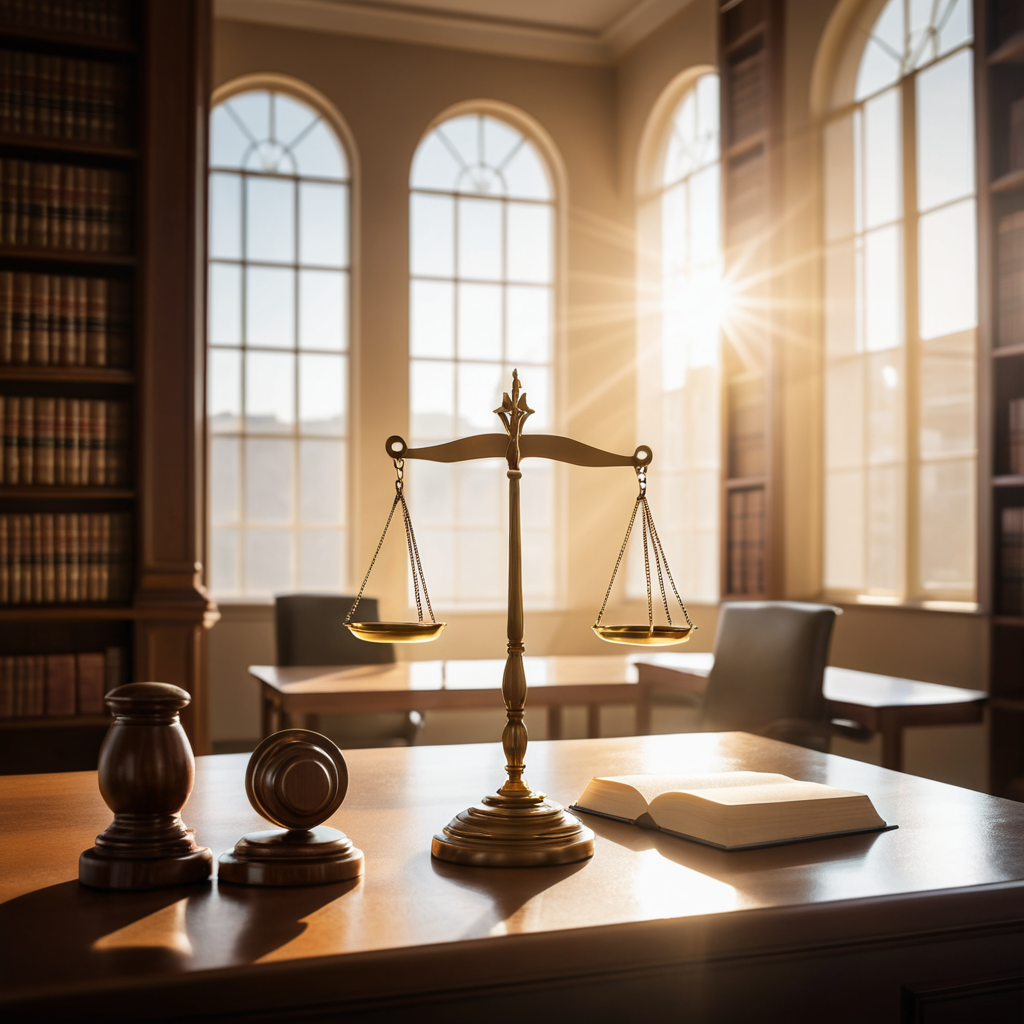
The international impact of the FCPA cannot be overstated. By holding U.S. companies accountable for corrupt acts abroad, the legislation also influences business operations and governance in foreign markets. This global reach underscores the importance of compliance programs and internal controls that adhere to the law. Moreover, it emphasizes the need for businesses to be proactive in addressing potential risks associated with bribery and corruption, avoiding severe penalties, and reputational damage.
As discussed throughout the blog, key elements such as the whistleblower programs, cooperation between U.S. agencies, and international collaboration are integral to the enforcement process. These mechanisms not only act as deterrents to corruption but also foster a corporate culture rooted in ethics and transparency. The legal landscape of the FCPA continues to evolve, with new amendments, cases, and rulings that reflect the growing challenges of tackling corruption in an interconnected world.
Reference Books
- “The Foreign Corrupt Practices Act: A Guide to the U.S. Law on Bribery and Corruption” by Barry C. Bartel – This comprehensive guide covers the history, evolution, and practical implications of the FCPA, providing valuable insights into compliance measures and legal defense strategies.
- “Anti-Corruption Law and Practice” by M. S. Lavan – An in-depth look at both the U.S. and international anti-corruption frameworks, offering detailed explanations of legal principles, regulations, and enforcement practices.
- “International Bribery and Corruption: Legal and Practical Aspects” by James A. Fanto – This book delves into the intersection of U.S. laws, particularly the FCPA, and international legal standards, with a focus on global anti-bribery efforts.
- “Corporate Compliance and Ethics: A Practical Guide to Creating Effective Programs” by Ruth V. Agustin – A guidebook for companies looking to build robust compliance and ethics programs, with specific reference to anti-bribery laws such as the FCPA.
- “Bribery and Corruption: The FCPA and International Law” by Mark J. Hager – This book offers a detailed review of FCPA enforcement actions and explores the broader international anti-corruption framework, providing case studies and real-world examples.
Reports and Studies
- U.S. Department of Justice FCPA Enforcement Year-in-Review – Published annually, this report highlights major FCPA cases, trends in enforcement, and key developments. It serves as a primary reference for understanding how enforcement priorities and strategies evolve over time.
- The FCPA Resource Guide (by DOJ and SEC) – This comprehensive guide provides detailed explanations of both the criminal and civil aspects of the FCPA. It is a must-read for companies looking to understand their obligations under the law.
- OECD Anti-Corruption Reports – The Organization for Economic Cooperation and Development (OECD) regularly publishes reports on anti-corruption policies, including the effectiveness of laws like the FCPA in promoting ethical business practices globally.
- Transparency International’s Corruption Perceptions Index – This annual report ranks countries by their perceived levels of corruption, highlighting the global challenges faced by businesses in regions where bribery and corruption remain pervasive.
- World Bank’s Stolen Asset Recovery Initiative Reports – These reports provide insights into global efforts to track and recover assets obtained through corrupt means, which can be valuable in understanding the wider impact of corporate bribery and the reach of anti-corruption laws.
Acts and Legislation
- Foreign Corrupt Practices Act (FCPA), 1977 – The foundational legislation that governs the enforcement of anti-bribery and accounting provisions for U.S. companies and foreign entities operating within U.S. markets. This act outlines the illegal practices and the penalties for violations.
- Dodd-Frank Wall Street Reform and Consumer Protection Act (2010) – While not directly a part of the FCPA, the Dodd-Frank Act plays a significant role in enhancing anti-corruption measures by strengthening whistleblower protections and offering rewards to whistleblowers who report violations of securities laws, including the FCPA.
- The UK Bribery Act (2010) – A significant piece of anti-corruption legislation that complements the FCPA. The UK Bribery Act provides a broader framework for prosecuting individuals and organizations engaged in corrupt activities, regardless of the country where the act of bribery takes place.
- The UK Anti-Corruption Act 2017 – This law enables the UK to impose sanctions against businesses that fail to prevent bribery and corruption within their operations, making it an important tool in the global fight against corporate corruption.
Court Judgments
- U.S. v. Siemens AG (2008) – One of the largest FCPA cases in history, where Siemens AG agreed to pay over $1.6 billion in penalties for violating the FCPA. This case set important precedents for corporate liability under the FCPA, showing the importance of corporate responsibility and internal controls.
- U.S. v. Alliance One International, Inc. (2010) – A landmark case where Alliance One, a U.S.-based tobacco company, paid a $16.5 million settlement for FCPA violations. This judgment highlighted the DOJ’s focus on ensuring that businesses are compliant with anti-bribery laws in their international dealings.
- U.S. v. Och-Ziff Capital Management Group LLC (2016) – In this high-profile case, Och-Ziff Capital Management Group paid over $412 million to settle charges related to FCPA violations. The case was significant in showing how the DOJ and SEC could pursue enforcement against hedge funds and other financial institutions.
- U.S. v. Walmart Inc. (2019) – In this case, Walmart agreed to pay $282 million to resolve allegations related to bribery of foreign officials. This case demonstrated the heightened scrutiny on multinational corporations and the significance of maintaining proper internal controls and compliance programs.
- U.S. v. Mobil (2021) – This case dealt with allegations of bribery and corruption in the oil and gas industry, with the U.S. court ruling in favor of the DOJ’s efforts to impose large fines on corporations involved in such misconduct.
Final Thoughts
As we have explored throughout this blog, the Foreign Corrupt Practices Act (FCPA) is a critical law in maintaining ethical conduct within international business. Its impact reaches beyond corporate governance, influencing global trade practices, international relations, and the fight against corruption. The role of the DOJ, SEC, and FBI in enforcing this law reflects a coordinated, multifaceted approach to tackling corporate bribery, with repercussions not just for violators, but also for the broader global business community.
Through continuous legal and regulatory updates, comprehensive investigations, and successful enforcement actions, the United States remains a key player in the global effort to curb corruption. Whether it’s the prosecution of individuals or corporations, the use of whistleblower programs, or the coordination with international enforcement agencies, the FCPA remains a pillar in the worldwide anti-corruption framework. Understanding its provisions, and adhering to its guidelines, is not only necessary for compliance but essential for fostering a more transparent, ethical, and accountable global business environment.




